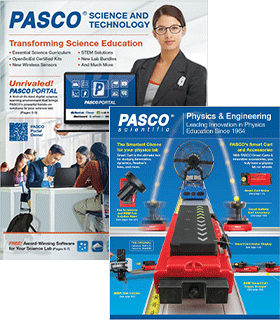Written by PASCO teachers, curriculum developers, science writers, and product experts, these resource articles are intended to teach students and educators alike about fundamental science concepts. Here, you can gain in-depth explanations on topics like the Kinematic Equations, Sound Waves, and more.
Mastering Solubility Rules: Your Guide to Dissolving Ionic Compounds
Attention all chemistry enthusiasts! Get ready to unlock the secrets of ionic compounds and their solubility in water. With a solid grasp of solubility rules, you'll be able to accurately predict which compounds will dissolve, helping you further understand ionic compounds and how they behave.
What is a Mole in Chemistry: Definition and Calculations Explained
Every great chemist knows the value of grasping the fundamental concept of the mole. In a world where chemical reactions are followed meticulously on a delicate scale, a thorough understanding of Avogadro's number and its mathematical equivalent is essential for predicting the outcome of reactions and determining the unknown amounts produced within a reaction.
Chemical Equilibrium Explained
Chemical equilibrium is the key to understanding how reactions behave in various situations. In essence, a reaction reaches a chemical equilibrium when the forward and reverse reactions occur at the same rate, resulting in no net change in the concentrations of reactants and products.
Ultimate Guide to Choosing a Science Curriculum
Finding the perfect science curriculum is a task many educators face. Choosing the right one can feel overwhelming, but this blog post offers guidance to help you evaluate your options and choose a program that suits your needs.
Exploring High School Physics Curriculum
This article covers the core components of a high school physics curriculum to help teachers, students, parents, and administrators understand the objectives of teaching physics concepts.
NGSS Standards: A Comprehensive Guide
Your state board of education may have adopted NGSS outright, or they may have enlisted state partners to form their own science standards. Either way, it is beneficial to understand next-gen approaches to science education before you implement them. This article explores what the standards entail.
Incorporating Technology in Chemistry Labs
Meet the digital age head-on. Modern tech transforms how students interact with molecules and reactions. Chemistry learners connect theory with practice in ways that were once sci-fi fantasy. This piece dives deep into this high-tech educational revolution—you'll get insights on everything from interactive learning environments to staying ahead of the curve as technology evolves.
Effective Strategies for Teaching Chemical Bonding
Imagine standing in front of your high school chemistry class, your students having entered with many possible things on their minds, some excited for the next lesson, others wondering who their next upcoming game will be against or what is the newest online trend. You’re ready to delve into exciting new territory, but you quickly discover that topics like Chemical Bonding could either spark curiosity or induce vapid yawns.









